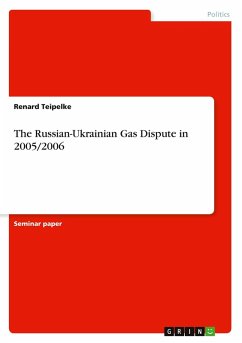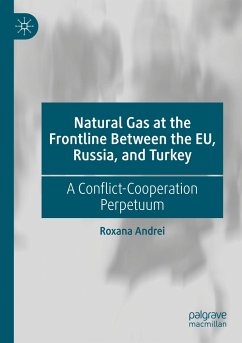
Security of the European Natural Gas Supply Constructivist Approach
The Black Sea Region and its geopolitical significance
Versandkostenfrei!
Versandfertig in 6-10 Tagen
32,99 €
inkl. MwSt.

PAYBACK Punkte
16 °P sammeln!
All major projects at the European level in the field of energy tend to lead back to Russia and three years after the first Ukraine gas shut-off in 2006, European countries faced another gas trade interruption, which seemed to accelerate the development of several alternatives policies and projects meant to diminish the hegemonic position of Russia. In the light of these recent events and by virtue of its strategic location, the Black Sea Region has gained unprecedented importance as a transit region of gas from the Middle East and the Caspian Sea area to the European market. Although there ha...
All major projects at the European level in the field of energy tend to lead back to Russia and three years after the first Ukraine gas shut-off in 2006, European countries faced another gas trade interruption, which seemed to accelerate the development of several alternatives policies and projects meant to diminish the hegemonic position of Russia. In the light of these recent events and by virtue of its strategic location, the Black Sea Region has gained unprecedented importance as a transit region of gas from the Middle East and the Caspian Sea area to the European market. Although there have been many studies that analyzed the European Union's interests in the Black Sea Region, relatively little attention has been devoted to the impact of the Russian energy threats on the process of Black Sea regional identity creation. Therefore, this study will fill a theoretical gap in the existing literature providing a different view of the energy security issue in the Black Sea Region.












